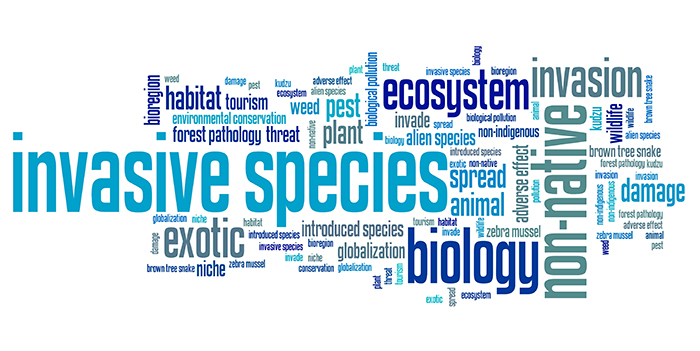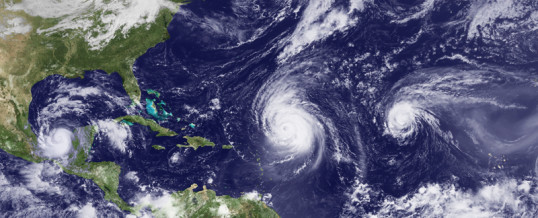AUGUST 14, 2017
Dr. Anamaria Bukvic provided this important update to her plans for GEOG 4984: Climate Change and Societal Impacts:
NEW OPPORTUNITY FOR EXPERIENTIAL LEARNING AND RESEARCH with local partners in Hampton Roads on the issues of sea level rise and resilience!
Please note that the Resilience Research & Design Tidewater Collaboratory will be integrated into a special studies course on Climate Change and Societal Impacts (Course 5984/4984, fall 2017) as a project-based component focused on experiential learning. In addition to the baseline information, the course content will refer to coastal Virginia to illustrate the complexity of emerging coastal challenges and possible solutions to improve the community resilience. This interdisciplinary opportunity represents a partnership with Wetlands Watch, Virginia Sea Grant, and the United States Green Building Council, Hampton Roads, and is supported by Adiuvans foundation.
The graduate students in this class will have an opportunity to participate in the field experience project on coastal vulnerability and resilience and help develop innovative adaptation tools and strategies that will advance the environmental and socioeconomic resilience of Hampton Roads communities. Moreover, the students will have an opportunity to explore how local contextual sociodemographic and cultural differences influence decision-making on adaptation policy and planning in urban locations affected by nuisance flooding.
As a part of this course component, graduate students will have an opportunity to:
- Visit the partner community with the course instructor at the beginning of semester to meet with the local stakeholders. Namely, they will work with them over the course of two days to establish a better understanding of local complexities, concerns, and considerations specific for this coastal area. Upon return, they will share their newfound observations and work with the rest of the class (undergraduate students) on developing actionable items to improve resilience;
- Travel again to Hampton Roads to meet with local partners to verify their preliminary findings and gain additional input on the selected methodology; and
- Deliver our findings to community partners in person in the form of student presentations, a summary poster that could further be used to engage community members on this issue, as well as an actionable, policy relevant report (at the end of semester).
Related Story in VT News, January 2018
[hr]
New Course Announcement:
Climate Change and Societal Impacts is a new course that will be offered by Dr. Anamaria Bukvic (GEOG) in Fall 2017.
Department of Geography
Course Number: 4984
Course Title: Climate change and societal impacts
Semester: Fall 2017
Time: Tuesdays & Thursdays, 10-11:15am
Anticipated Student Enrollment: 40
Instructor: Dr. Anamaria Bukvic, Research Assistant Professor, Geography, ana.bukvic@vt.edu

DOWNLOAD THE FLYER
Course Description: Accelerated climate change has been permanently changing the natural, built, and social systems around the globe over the last few decades. Many of these impacts are gradual but permanent and tend to exacerbate many preexisting issues in populated communities – shifting from sporadic to frequent occurrence, from minor to major event, from slight societal disruption to a radical one. With sea level rise, more frequent and intense storms, increased precipitation, prolonged and persistent droughts, and many other more subtle environmental changes, societies are facing major challenges in how to respond to these issues given a number of other challenges they are facing, such as political instability, failed economies, environmental degradation, mass migrations, and resource stress.
Therefore, this class will focus on the multidimensional aspects of climate change and adaptation, as well as on the interactions, complexity, uncertainty, and possible outcomes for different societies. It will explore dynamic trends of climate change-induced population movement, conflicts, socioeconomic shifts, geopolitics, and equity issues, as well as their impact on vulnerability, resilience, and adaptive capacity of different societies. The course will utilize contemporary digital tools to facilitate students’ comprehension and engagement with this issue and explore connections across spatiotemporal scales and different systems. In addition, it will apply innovative approaches to understand uncertainty and explore alternative futures via scenarios and foresight analysis. This strategy will empower students to actively participate in discussion, analysis, and interpretation of emerging changes on different social systems, as well as in proposing contextual, robust, and realistic adaptation strategies.
Course Objectives: Upon the successful completion of this course, students will achieve the following objectives/be able to:
- Advance knowledge of global climate change issues, complexities and uncertainty (e.g., science, terminology, direct and indirect impacts, adaptation options, and main societal stakeholders).
- Define contemporary societal challenges associated with climate change and methodically discuss individual aspects of this problem and their interactions (e.g., feedback loops, ripple effects, thresholds, carrying capacities, system collapse)
- Develop skills to identify the problem and its root cause, possible short-term and long-term solutions, implementation barriers and opportunities, as well socioeconomic costs of action vs. inaction.
- Demonstrate ability to utilize contemporary methodological approaches and tools to understand, critically analyze, and resolve different societal issues related to climate change.



 Class time & location
Class time & location




